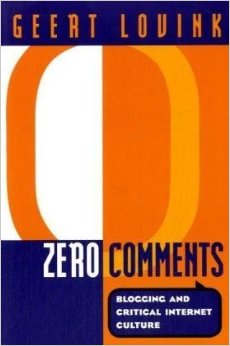Stefan Krappitz: Troll Culture: A Comprehensive Guide (2012)
Filed under thesis | Tags: · 4chan, anonymous, internet culture, memes
Trolling is a art!
Sadly, most authors don‘t recognize the beautiful side of trolling and describe trolls as bored teenagers or fat unemployed basement dwellers. While this may be true in some cases, other trolls are just normal people that see the Internet as a playground or a canvas.
Troll Culture shows the history of trolling and aims to draw a new differenciated picture of trolling as a constant part of internet culture that has ugly, but also lots of beautiful sides to it. It gives instructions on both how to defend from trolls and on how to become a good troll yourself. In the end it also explains trolling as a memetic concept, that has spread virally all over the Internet.
Diplomarbeit (not Master thesis as stated earlier, fixed on 2012-6-4 after ???)
Neue Medien, Merz Akademie, Hochschule für Gestaltung, Kunst und Medien, Stuttgart, 2011/2012
Supervisor: Prof. Olia Lialina
134 pages
via Marcell
conversation with the author (Matei Samihaian, Pool)
PDF
View online (HTML)
Geert Lovink: Zero Comments: Kernels of Critical Internet Culture (2007)
Filed under book | Tags: · blogging, collaboration, distributed aesthetics, internet, internet culture, media theory, net criticism, networks, web 2.0

In Zero Comments Geert Lovink upgrades worn-out concepts and inquires the latest Web 2.0 hype around blogs, wikis and social network sites. In this third volume of his studies into critical Internet culture, Lovink develops a ‘general theory of blogging.’ Unlike most publications he is not focusing on the dynamics between bloggers and the mainstream news media. Instead of celebrating ‘citizen journalism’ blogs are analyzed in their ‘nihilist impulse’ to empty out established meaning structures. Blogs bring on decay of the 20th century broadcast media, and are proud of their in-crowd aspect in which linking, tagging and ranking have become the main drivers. The book also deals with the silent globalization of the Net in which no longer the West, but countries like India, China and Brazil are becoming main players in new media culture. It is not only the latest that Internet enthusiasts should focus on. Zero Comments upgrades concepts such as global Internet time, tactical media, the crisis of new media arts and the problematic relationship between architecture and the Net. The book ends with speculative notions on concepts such as organized networks, free cooperation and distributed aesthetics.
Publisher Routledge, 2007
ISBN 0415973155, 9780415973151
312 pages


